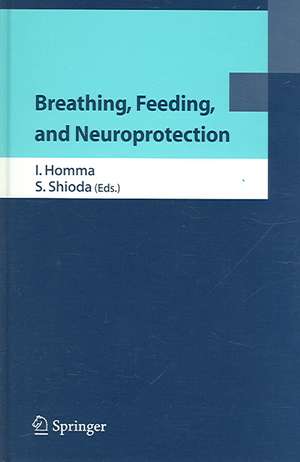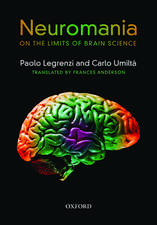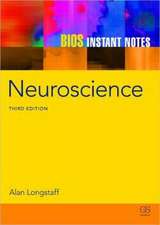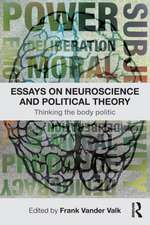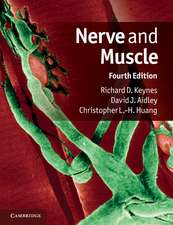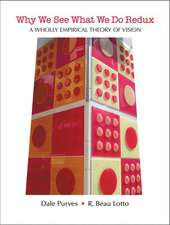Breathing, Feeding, and Neuroprotection
Editat de I. Homma, S. Shiodaen Limba Engleză Hardback – 4 mai 2006
| Toate formatele și edițiile | Preț | Express |
|---|---|---|
| Paperback (1) | 374.46 lei 6-8 săpt. | |
| Springer – 22 oct 2016 | 374.46 lei 6-8 săpt. | |
| Hardback (1) | 381.63 lei 6-8 săpt. | |
| Springer – 4 mai 2006 | 381.63 lei 6-8 săpt. |
Preț: 381.63 lei
Nou
Puncte Express: 572
Preț estimativ în valută:
73.07€ • 75.38$ • 60.56£
73.07€ • 75.38$ • 60.56£
Carte tipărită la comandă
Livrare economică 20 februarie-06 martie
Preluare comenzi: 021 569.72.76
Specificații
ISBN-13: 9784431287742
ISBN-10: 4431287744
Pagini: 168
Ilustrații: XVI, 148 p. 5 illus. in color.
Greutate: 0.42 kg
Ediția:2006
Editura: Springer
Colecția Springer
Locul publicării:Tokyo, Japan
ISBN-10: 4431287744
Pagini: 168
Ilustrații: XVI, 148 p. 5 illus. in color.
Greutate: 0.42 kg
Ediția:2006
Editura: Springer
Colecția Springer
Locul publicării:Tokyo, Japan
Public țintă
ResearchDescriere
New findings in brain research are being revealed on an almost daily basis, and the focus of this book is the fields of breathing, neuroprotection, and higher brain functions. An unresolved issue within respiration research and hence a topic of much interest is Where and how respiratory rhythm is generated in the brainstem, detailed analysis of which is presented herein. Chapters on neuroprotection examine the functional significance of the blood – brain barrier as an interface of blood and the central nervous system; other chapters look at health and disease in relation to the hypothalamic and limbic systems. In addition to animal experiments, research on the human brain is included, with a focus on the recently developed EEG/dipole tracing method. This book will be an invaluable reference for researchers in neuroscience and related fields.
Cuprins
Part I. Central Regulation of Breathing Visualization of Respiratory Activity in the Ventral Medulla from a NewBorn Rodent. Search for Genes Involved Central Respiratory Failure Using Mice Models. Control of Central Histaminergic Neurons for Respiration during Hypercapnia in Conscious Mice. Part II. Neurogeneration and Neuroprotection The Role of the Blood-Brain Barrier in Feeding: Leptin. Ultrastructural Study on the Demyelination of the White Matter in the Rat Spinal Cord After Cardiac Arrest and Massive Hemorrhagic Shock. Engagement of Proinflammatory Cytokines After Cerebral Ischemia. Levels of the Alkoxy Radical in Patients with Brain Death. Differentiation of Neural Stem Cells into Astrocytes by Low Concentration of Pituitary Adenylate Cyclase-Activating Polypeptide (PACAP). Neurogenesis is Toxicologically Heterogeneous: A Case of BrdU-Induced Cell Death. Part III. Brain Functions in Health and Disease Hypocretin-Deficient Narcolepsy as a Disease Model to Study the Hypothalamic Function in Health and Disease. Identification of Molecular Systems Responsible for the Therapeutic Effect of Antidepressant. The Expression of Synaptic Vesicle Proteins After Chronic Antidepressant Treatment in Rat Brain. S-100B Expression in Neonatal Rat Cortical 'Barrels' and Thalamic 'Barreloids'. Postnatal Change of Glycinergic Synaptic Transmission from Supratrigeminal Region Trigeminal Motoneurons. Central Nervous System Concerned with the Stress Induced Iinhibition of Cellular Immune Activity. Part IV. Brain Functions by the Dipole Tracing Method Can not Llive without Breathing, without Emotions. Breathing Mind in ‘Noh’. The Source Generator of Event-Related Potentials with Recognizing Facial Expression by the Dipole Tracing Method. Source Localization of Event-Related PotentialsRelated to Cross-Modal Semantic Interference Effect Using Scalp-Skull-Brain Dipole Tracing Method.
Caracteristici
Prior works in respiratory pattern generation
